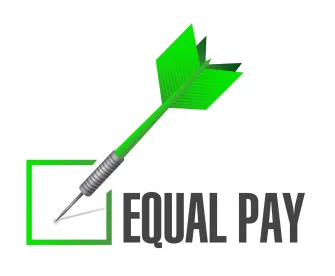On March 21, 2018, Governor Jay Inslee signed the Equal Pay Opportunity Act (EPOA) into law, updating Washington’s 1943 Equal Pay Act. The 1943 Equal Pay Act created a private right of action for women who are paid less than similarly employed men because of their sex. This is the fourth year in a row the Washington legislature has considered updates to the 1943 act, which has not been modified since it was originally passed. This year, however, the EPOA gained traction and passed the Washington State House of Representatives and the Washington State Senate.
The EPOA amends the existing private cause of action for pay equity complaints, prohibits wage secrecy policies, provides an administrative remedy, prohibits gender-based barriers to career development opportunities, and prohibits employer retaliation for complaints of unequal pay or other protected conduct. Further, the EPOA updates language from "sex" to "gender," consistent with Washington’s other anti-discrimination laws.
Private Cause of Action and Defense
The EPOA retains a private cause of action, which is substantively the same as that of the 1943 act; employers may not discriminate in compensation based on gender between “similarly employed” employees. While the original act allowed an employer to assert a “good faith” defense, the updated EPOA goes further and lists the factors a court may consider in an employer’s “good faith” defense. “Good faith” factors include, but are not limited to, business necessity education, training, experience, seniority, merit, and regional differences. An employee may recover reasonable attorneys’ fees in a successful private action.
Administrative Enforcement
The EPOA tasks the Washington State Department of Labor and Industries with administratively enforcing the EPOA. The Department’s enforcement powers include investigating employee complaints by reviewing testimony or documentary evidence. The Department may also award damages up to $5,000 and/or assess a civil penalty up to $1,000.
Wage Secrecy
The EPOA prohibits an employer from using wage secrecy measures. This change is likely to affect many employers’ existing policies and employment contracts. The EPOA prohibits an employer from requiring nondisclosure of wages as a condition of employment or requiring employees to contractually agree to nondisclosure. Further, an employer may not discharge or retaliate against employees who discuss or compare wage information. Employers are not required to disclose others’ wage information to an inquiring employee, and management employees with access to wage information are only required to disclose such information in response to a complaint, charge, or as otherwise required by an applicable legal duty.
The EPOA leaves open questions, such as whether an employer may prohibit an employee from disclosure of wages outside of the company, e.g., to a competitor.
Career Advancement
The EPOA also broadens pay equity to prohibit employers from limiting or depriving career advancement opportunities based on gender. The EPOA does not list specific illegal actions, but draft versions of the bill made it illegal to (a) fail to announce or provide access to opportunities based on gender and (b) fail to provide training based on gender. Although this language was removed in the final version, the prohibitions are instructive and certainly fall under the more general "limit or deprive an employee of career advancement opportunities” based on gender standard.
Key Takeaways
The law goes into effect on June 7, 2018. Employers should promptly review their wage secrecy and compensation policies to come into compliance.




 />i
/>i

